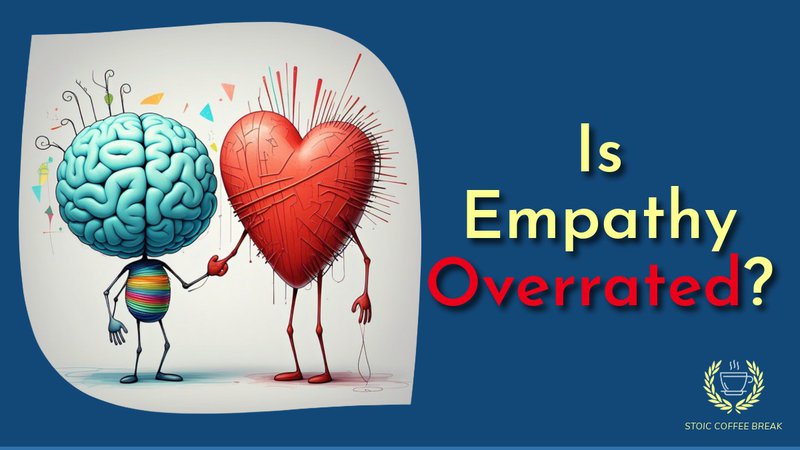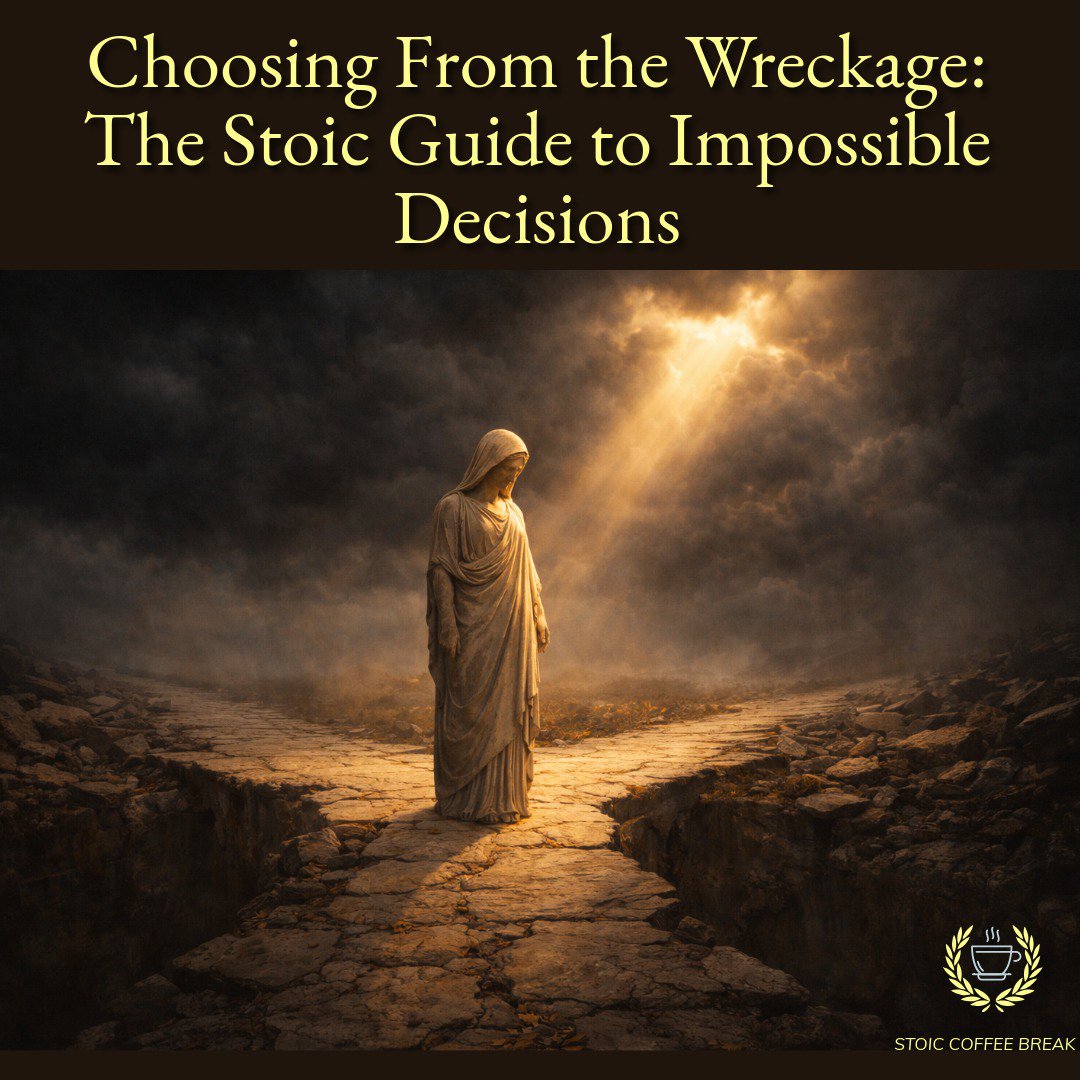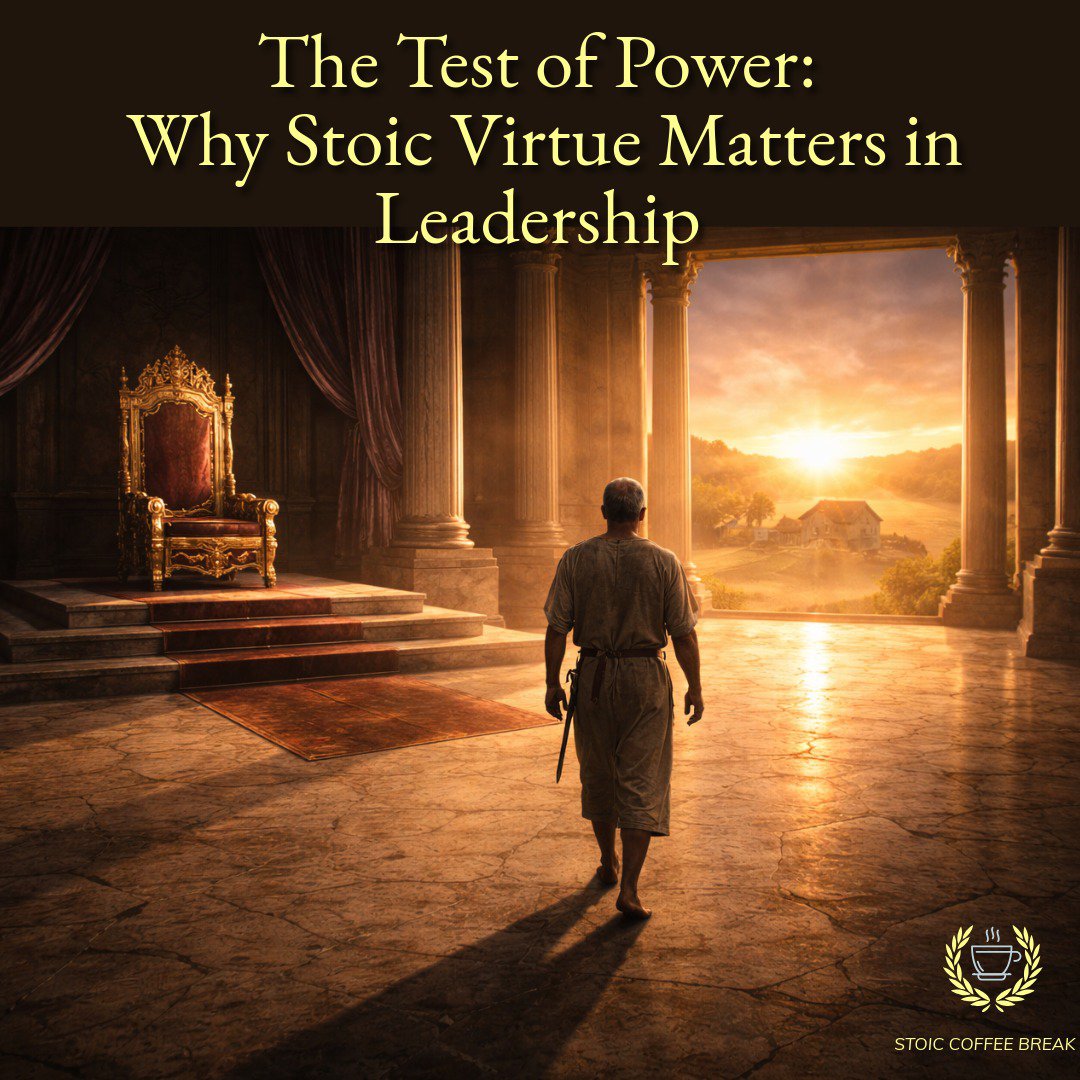
Empathy has been called everything from a virtue to a weakness. But in an age of outrage, is empathy a liability? Or is it the very thing we need to preserve civilization?
“Wherever there is a human being, there is an opportunity for kindness.”
—Seneca
Today, I want to dive deeper into a topic we’ve touched on before: empathy. Now, there’s been a lot of instances online where prominent people complain that we shouldn’t have empathy, that empathy is the downfall of civilization. Now to me this sounded completely outrageous. I mean, how can being kind and caring about others be something that is so dangerous? I started to feel like I was living in an episode of Black Mirror.
So I did little research to try and understand where this idea of empathy being a bad thing and in some cases even being called a sin. Specifically, empathy towards those we disagree with—or even those whose actions we find reprehensible. It’s a challenging concept, and lately, there’s been a growing sentiment that empathy has its limits, especially when extended to those who might exploit it.
But before we delve into that, let’s revisit what empathy truly means.
Empathy isn’t about agreement or approval. It’s about understanding—seeing the world through someone else’s eyes. The Stoics had a term for this kind of understanding: oikeiôsis. It refers to the natural affection we feel towards others, starting from ourselves and extending outward to family, community, and eventually all of humanity. This concept underscores the Stoic belief in the interconnectedness of all people.
Marcus Aurelius, one of the prominent Stoic philosophers, reminded himself:
“Men have come into being for one another; so either educate them or put up with them.”
— Meditations, 8.59
This isn’t a call to passive acceptance but an acknowledgment that understanding others is a core part of our nature. Empathy, properly understood, is a cognitive skill — the ability to understand without being swept away.
Critiques of Empathy
Now, let’s address the recent critiques of empathy. Some argue that empathy can be “weaponized,” leading us to support actions or beliefs that contradict our values. For instance, in a recent article titled “Empathy isn’t a sin. It’s a risk,” the author, Micheal C. Rea discusses concerns about “untethered empathy”—when our identification with others’ emotions overwhelms our judgment. The article references Joe Rigney’s book, “The Sin of Empathy,” where he argues that excessive empathy can lead to moral compromise.
Now the main case that Rigney uses in the book is about parents dealing with LGBTQ children. He posits that if the parents have empathy for their children, that their children are “weaponizing empathy” and emotionally blackmailing them.
So think about that—what he is saying is that if a parent decides to care about their child and their struggles and decides to support them and love them, that’s a bad thing.
And there’s a great quote from Micheal Rea in that article which really sums up what I want express in this episode:
“Empathy is an exploit (in the computer hacker’s sense of the term). It’s a back door through which people we have become hardened against might actually get through to us. Suppressing it makes it easier for us to remain hardened — to persist in taking advantage of them, abusing them, oppressing them.”
To be honest, what I see taking place is the people who argue against empathy are justifying their harmful behavior towards those they disagree with. This is because it might feel uncomfortable to see the harm that they are causing. Or possibly change their views. Or take responsibility for their actions. Remaining hard and closed off is a protection mechanism from taking accountability for their own feelings and actions.
I also see this as a justification for a worldview that everyone is out to manipulate and screw you over, so you have to be on guard. And sure, there are people out there who might try to emotionally manipulate you. But again, being empathetic helps you understand where the other person is coming from—what their drives and desires are. In fact, a lack of empathy leads to an inability to anticipate the behavior of those we oppose. Being more empathetic actually makes you less vulnerable to being manipulated.
Now a side note, I find it a bit ironic that some people who promote this idea of empathy as a bad thing, really struggle when the roles are reversed. A good example of this is when Elon Musk talked about how empathy was the downfall of western civilization. Then only a few months later when his companies were losing value and customers, and people were protesting at his Tesla dealerships, he complained about how people were lacking empathy towards him. Now I’m not saying that he doesn’t deserve empathy, but more that it proves my point that we all need empathy, often when we might not deserve it.
Nuremberg
Let’s revisit the Nuremberg trials to illustrate the dangers of an empathy deficit. Now I know that Nazi comparisons are often overused, but they very instructive of what happens when a society veers away from empathy.
Observers noted that many Nazi officials displayed a chilling lack of empathy. Captain G.M. Gilbert, an Army psychologist during the trials, observed:
“I told you once that I was searching for the nature of evil. I think I’ve come close to defining it: a lack of empathy. It’s the one characteristic that connects all the defendants. A genuine incapacity to feel with their fellow ma. Evil, I think, is the absence of empathy.”
This absence wasn’t just a personal failing but a societal one, reflecting a broader cultural desensitization. Hannah Arendt, reporting on the trial of Adolf Eichmann, introduced the concept of the “banality of evil,” highlighting how ordinary people can commit atrocious acts when they stop seeing others as human beings. These men could talk about mass murder the way someone might talk about organizing a filing cabinet.
No emotion. No remorse. No recognition that the people they’d hurt were… people. It wasn’t about grand villainy or a fiery hatred. It was about thoughtlessness — the failure to imagine the suffering of others.
That’s what happens when empathy disappears.
Arendt also warned:
“The death of human empathy is one of the earliest and most telling signs of a culture about to fall into barbarism.”
Without empathy, societies risk descending into moral decay.
Justice
So justice, meaning how we treat other people, is one of the core virtues of Stoicism. Our ability to understand and treat people fairly, even those we disagree with, is enhanced by empathy. When we let go of empathy we become more reactive rather than responsive because we assume we already know why someone else says or does something. We dehumanize and flatten people into caricatures because we are unable to appreciate or understand the complexities of another person. A lack of empathy leads to more polarization and conflict.
Empathy is not passive. It’s a radical act of imagination that can make justice more informed, not less.
Common Good
The Stoics were emphatic about the fact that we all belong to the same human family with the idea of cosmopolitanism, and that we all need to look out for each other and work towards the common good. Seneca in his book On Anger wrote:
“We are members of one great body, planted by nature. We must consider that we were born for the good of the whole.”
Meaning that we have a duty to help each other and consider the needs and suffering of others, not just our own selfish interests. Part of what makes humanity thrive is our ability to work together for the common good.
Personally, I like living in a world where people are empathetic and care about others. As an example from my own life, when I was 10 years old. It was summer and my brother and were out riding bikes like we always did. I came around a corner and hit some water on the road. My bike slipped out from under me and I went down hard and broke my arm. We were about two miles from home and not sure how we were going to get home (this was long before cell phones).
Just then, a couple pulled up in a car to see if we were okay. They took one look at my arm and quickly loaded us and our bikes in their car and brought us home. To this day, I’m grateful that some random strangers were empathetic enough to help me in a time of need.
Conclusion
So, where does this leave us?
While it’s true that empathy involves risks, it’s essential to differentiate between empathy and blind agreement. Empathy allows us to understand another’s perspective without necessarily endorsing it. This distinction is crucial in maintaining our moral compass while still engaging compassionately with others.
Empathy also doesn’t mean we abandon our principles or excuse harmful behavior. Instead, it equips us to address issues more effectively. By understanding the motivations and emotions of others, we can craft responses that are both compassionate and firm.
As Seneca wrote:
“It is equally faulty to trust everyone as it is to trust no one.”
We need to practice discernment, which is key to empathy—not blind emotion, but thoughtful, balanced understanding. It’s about being in tune with our emotions and the emotions of others and using our rationality to make wise assessments. This balanced approach helps you navigate the world with an open heart and clear mind.
I’ll be honest—practicing this kind of empathy isn’t always easy. There have been times when I’ve struggled to understand perspectives that clash with my own deeply held beliefs. But in those moments, I’ve found that striving for empathy doesn’t weaken my convictions; it strengthens them by grounding them in a deeper understanding of our shared humanity.
Empathy doesn’t mean surrendering our values. It means understanding the world clearly enough to fight for them. In an age of outrage, maybe what we need is not less empathy — but a deeper, stronger, more courageous kind of empathy.
Until next time, stay grounded, stay curious, and as always—be kind, not because it’s easy, but because it’s powerful.
My book Stoicism 101 is available! Order here!
Find out more at https://stoic.coffee
Watch episodes on YouTube!
Find me on linkedIn, instagram, twitter, or threads.
Thanks again for listening!


